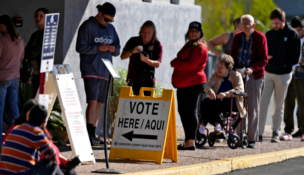Prisoners try to slow push for executions
Kyra Haas Arizona Capitol Times//April 23, 2021//
With Arizona’s rush to resume executions come unanswered questions on the sanity and innocence of the first two of 21 condemned prisoners and the motivations of Attorney General Mark Brnovich. Brnovich notified the Arizona Supreme Court this month that the state...











































